#patty hall
Explore tagged Tumblr posts
Text
Poppy playtime stupid meme (again) (well i ship Stella grayber with Eddie M.N. Ritterman, cause i think their chemistry looks so right)








#poppy playtime#elliot ludwig#stella greyber#leith pierre#harley sawyer#Eddie M.N. Ritterman#rich lovitz#avery#Patty Hall#harley x leith#rich x avery#stella x eddie#i don't know what do you think but ship stella with eddie be i think they can compatible#ship#meme#patty look so jealous to avery#suggestive#?
113 notes
·
View notes
Text
Rich and Patty hall- Husband and Wife=Huggy and Kissy update
(spoiler chapter 4 near end)

so far
Chapter 2 confirms Rich has a note with hearts to call patty hall.

Chapter 3 Rich mentions he has a wife, and he is trying to be better for her! So with the in game clue left for us. Small piece each chapter. This points to Rich and patty being husband and wife as a strong Possibility. The only two character who are married in the employee list that we know of from the documents/vhs tapes.. Also noted Rich last name is never revealed and his year date on vhs. So this could mean slow big reveal.
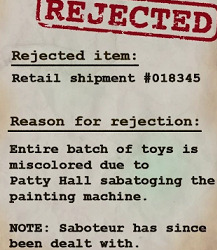
It's never confirmed why Patty was defiant against the company.. But if Rich is the first who goes missing.. Then his wife would most likely get frustrated with no one knowing where Rich went. and we know from chapter 4 vhs they confirm they cover up missing people who worked in poppy playco company.. So patty not gonna get any answers unless she get their attention.. and she did...when they sent her to storage B, where we know Kissy is stored.. As documents state Patty hall has been dealt with...
Though not fully- As even when she becomes Kissy she still helping us the player, breaking the rules against the company that took her husband and also turned her into toy.
I am not sure Rich-huggy is aware of his wife fate... notice in game. both the bigger bodies of Huggy and Kissy have not interacted all game.
Rich statement- he trying to be better for her, his wife who he loves.. I could see this might be the turning point for rich/huggy turning on the prototype.
Also interesting thing in chapter 3 Rich mention he feels like everyone out to get him before he promoted..

From the doey clue, I think he might found huggy and patched him up. As when doey sees kissy. He is shocked and mentions to get the medic. They are also short supply down there.

Though other strong possibility is rich repaired himself with duct tape. As we know he worked in shipping, and what do box need when closed? tape and lots of it.
What could be end goal for Huggy and Kissy fate though in probably the last chapter?
Well from clue it's possible Patty was thinking of adoption, and Rich was aware. As chapter 3 Kissy is shown looking at one the children picture-possible one of the kids she would adopted if not turned into kissy.
And we do have a child, that being Poppy.
Poppy is a child as even in recent vhs tapes she states she misses her dad. When poppy starts to have a breakdown. Kissy concern for poppy over her own fear shows. Showing patty care for the child breaking infront of her. In the newest tapes Rich is shown looking out for his younger employee. and calls him kid. So to me this shows rich and patty might have adopted a child if not what happen to both of them. As in chapter 3 kissy was shown aggressive when we neared the abandons orphanage area.. And she know what they do the children in here.
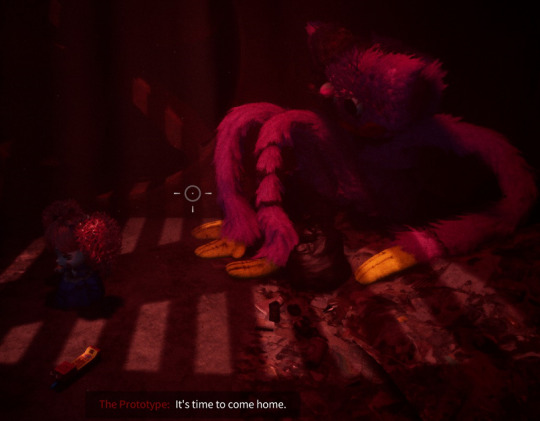
As kissy stays behind to follow poppy and protect her from the prototype. She shows concern like a mother looking out for her child.
As we see her hang on the cliff ledge after she looses her right arm. choosing to stay behind and go after Poppy.

kinda symbolic now both of them have lost their arm. Kissy right arm, and Huggy left arm.
The only thing left is to See if Rich realize his Wife is also down here with him... Maybe they threaten Rich to behave or they turn his wife like they did him.. Rich did escape to some unknown house.. probably his house.. where he and patty lived.. Trying to go back to her.. but probably realizing his appearance would scare her nor would she recognize him while she was still human at the time.
Would explain Rich anger issue/behavior doing 180 for the company. Better for his wife safety. once they realized. He was patient all those years and showed no mercy in the hour of joy..
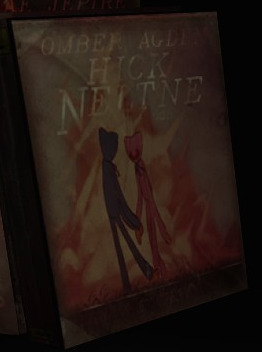
I think in the end when they reunite, after learning the truth.. Could maybe get them fixed up by the player, and poppy is adopted by Rich and patty..
#poppy playtime#poppy#kissy missy#rich#patty hall#storage b#theory#theories#chapter 4#poppy playtime chapter 4 theory
92 notes
·
View notes
Text
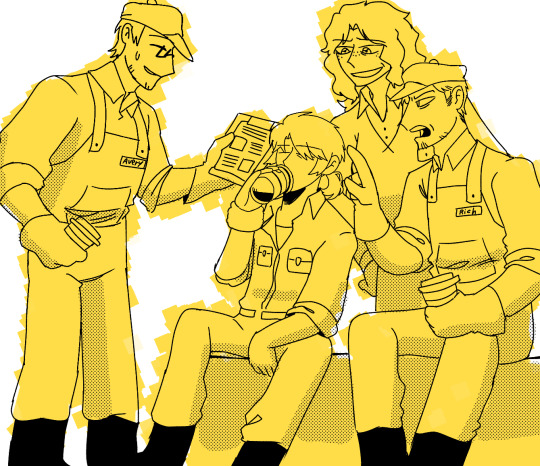
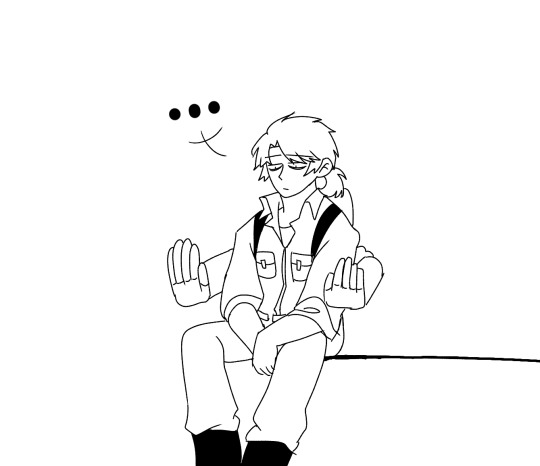
Good old days
151 notes
·
View notes
Text


Sharon design belongs to @sakura-arts , next page will be out…when it’s out.
Feat. Cameos from @game-stationed ‘s Watson and @mjsensei259 ‘s Jennet!
Prev | Next
#poppy playtime#poppy playtime art#Poppy playtime fanart#poppy playtime comic#PPt art#PPt fanart#patty hall#PPt Patty hall#art#art of tumblr#artist on tumblr#illustration
23 notes
·
View notes
Text
The ladies from Playtime. Co

Madeline Lane (Mommy Long Legs)
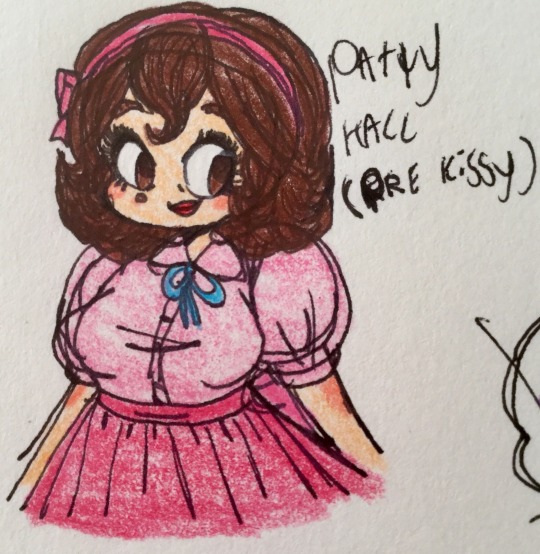
Patty Hall (Kissy Missy)
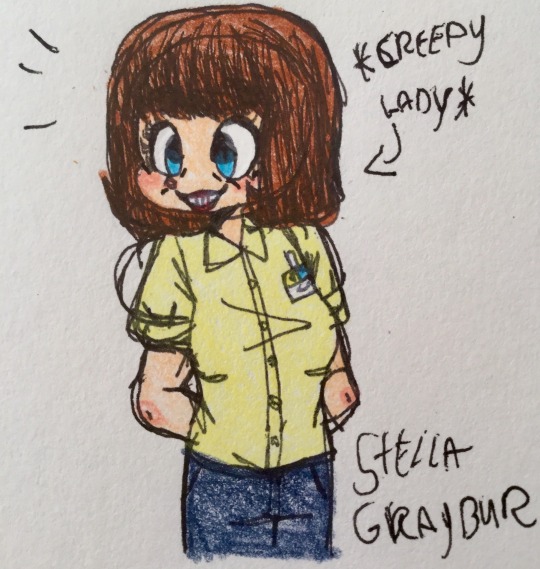
And creepy womanchild Stella Graybur
(Patty’s design is inspired by @the-friendliest-freak and Stella’s design is inspired by Tim Burton’s Willy Wonka lol mixed with Game Theory’s Stella design)
17 notes
·
View notes
Text
The GLORY OF LIVING IN THE SAME TIMELINE AS
✨️WOMEN✨️
#kathryn hahn#aubrey plaza#jodie comer#faye malisorn#engfa waraha#charlotte austin#freen sarocha#becky armstrong#lingling kwong#orm kornnaphat#patti lupone#sonya saranphat#lookmhee punyapat#milk pansa#elizabeth olsen#chungha#kim dami#angelina jolie#sandra bullock#halle berry#cate blanchett#charlize theron#regina king#taraji p. henson#sasheer zamata#michaela coel#kim taeri#gillian anderson
67 notes
·
View notes
Text















Darren Criss | Maybe Happy Ending | Mia, Friends & Celebs | December 2024
📸: ♡, ♡, ♡, ♡, ♡, ♡
#darren criss#helen j shen#mia swier#maybe happy ending#maybe happy ending bway#mhe december#mhe bts#jodi benson#julianne hough#kenny ortega#carly rae jepsen#marc jacobs#stephen schwartz#anna wintour#marcus choi#john cameron mitchell#todrick hall#patti lupone#nina dobrev#stephen trask#manon mathews#broadway#dailymalecelebs#mancandykings#celebedit#dailyceleb#celebsource#flawlessceleb#malestarsedit#dailymen
21 notes
·
View notes
Text
“Mick never wanted me to talk to his women. They end up crying on my shoulder because they've found out that he has once again philandered. What am I gonna do? The tears that have been on this shoulder from Jerry Hall, from Bianca, from Marianne, Chrissie Shrimpton.. They've ruined so many shirts of mine. And they ask me what to do! How the hell do I know? I don't f*ck him! I had Jerry Hall come to me one day with this note from some other chick that was written backwards — really good code, Mick! — "I’ll be your mistress forever." All you had to do was hold it up to a mirror to read it... And I'm in the most unlikely role of counselor, "Uncle Keith." It's a side a lot of people don't connect with me.”
Keith Richards, Life
#a. probably shirts that he stole from#patti or charlie anyway#b. how is the glimmer twins thing remotely believable as something other than good marketing?#the rolling stones#keith richards#old married band#mick jagger#jerry hall#quote
30 notes
·
View notes
Text










The Long Good Friday (1980)
"Alan found him dying. He'd been nailed to the floor."
"When was this, then?"
"Well, it must've been just after you saw him and just before Alan saw him. Otherwise, you'd have noticed, wouldn't you? I mean, a geezer nailed to the floor. A man of your education would definitely have spotted that, wouldn't he?"
#the long good friday#british cinema#1980#john mackenzie#barrie keeffe#bob hoskins#helen mirren#derek thompson#eddie constantine#stephen davies#bryan marshall#p.h. moriarty#paul freeman#dave king#patti love#pierce brosnan#brian hall#paul barber#francis monkman#I'm late to this party but hell‚ this one deserves its reputation. an incendiary‚ even prophetic film; a perfectly timed capturing of that#moment everything in the uk shifted as Thatcher took power‚ capitalism became truly king‚ and with it came the dawn of the yuppie mindset#the legitimisation of the London underworld‚ gentrification and a new age of international aspirations: the US‚ Europe‚ and the New Britain#desperately shedding its dusty‚ working man's image to appear (like Hoskins here) to be civilised and refined and (crucially) a going#concern in economic turns. but underneath it all there's still the razors and the bigotry and corruption. all time Hoskins performance here#giving it everything and absolutely killing it (the final scenes among the best of his impressive career). but there's everyone else‚ too;#every single role seems tonbe a familiar face‚ right down to mute background roles. Keeffe's script is sharp and funny but it's also#unashamedly complex; the plot is labyrinthine‚ underneath the simple conceit‚ and never feels the need to spoonfeed what's happening and#why. topped off with a great moody synth score that's sparingly but effectively used. happy to say this one lives up to the hype#and Derek Thompson‚ as he so often was‚ is brilliant. between this and his tv work from the era (Harry's Game and The Price especially) he#really had the makings of a true star (but if he was happy in Casualty all those years‚ so be it)
14 notes
·
View notes
Text
Attention rolling stones art makers/artists here!!
PLEASE MAKE FANARTS OF THE STONES GIRLS 🥲 especially Suki Potier, Shirley Watts, or anyone... I don't think I've seen one yet
#the rolling stones fanart#the rolling stones#suki potier#shirley watts#marianne faithfull#anita pallenberg#patti hansen#bianca jagger#chrissie shrimpton#jerry hall
12 notes
·
View notes
Text
youtube
Patti Smith performing Because the Night at the Rock and Roll Hall of Fame concert.
7 notes
·
View notes
Text
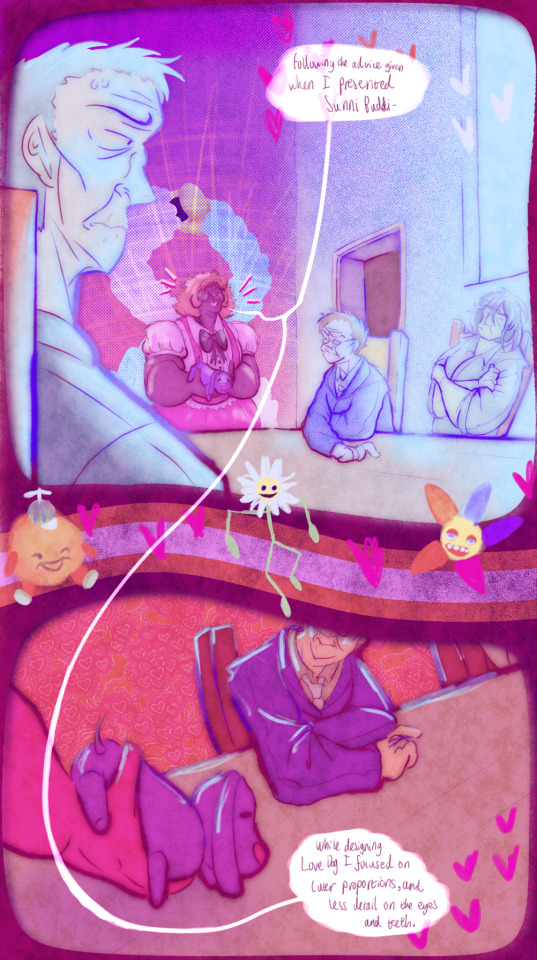
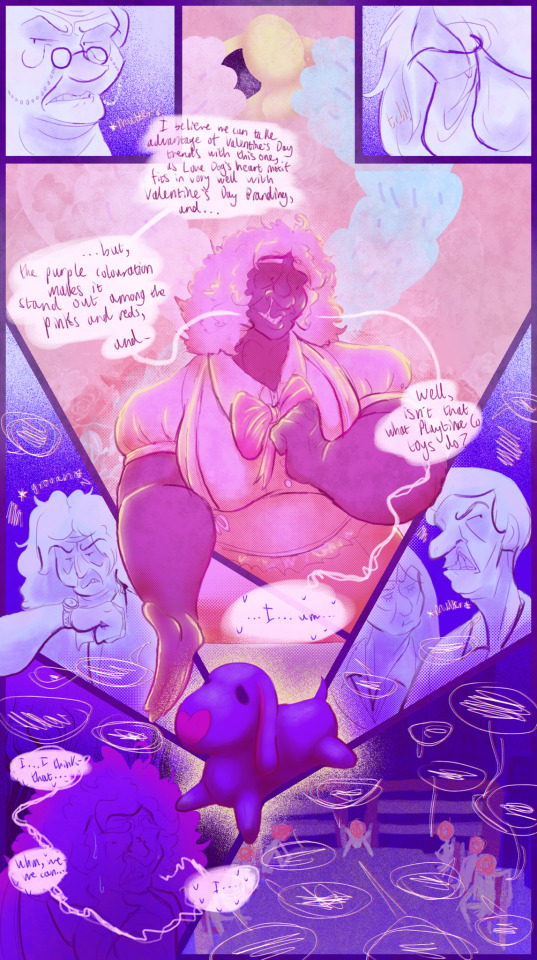
Apologies for the wait, but here are the first two pages! The next two should be out…whenever. :P
Poor Patty. Ahead of her time, truly.
Next
#poppy playtime#Poppy playtime fanart#Poppy playtime art#Poppy playtime artwork#Poppy playtime comic#comic#Patty hall#PPt Patty hall#art#artist#illustration#art of tumblr#artist on tumblr
35 notes
·
View notes
Text

I felt like updating her cuz I love her
11 notes
·
View notes
Text

I loved working with Patti Hansen. She was seeing Keith Richards, who hung out in back telling outrageous stories about Mick and Jerry Hall. He looked like an insect; no, he looked like an ad for chewing tobacco — with those hollowed-out cheeks and his evil teeth.
Janice Dickinson, No Lifeguard on Duty: The Accidental Life of the World's First Supermodel.
#🥴🥴🥴🥴#he looked good ms Janice!!!#janice dickinson#patti hansen#keith richards#mick jagger#jerry hall#the rolling stones#classic rock#old rockstar#rockstar gf#book quotes#quotes#rockstar girlfriend#80s model#80s fashion#fashion#80s rock#80s#80s music#rocknroll#rock n roll#rock
13 notes
·
View notes
Text

Today I will remember the extraordinary soprano Adelina Patti (1843-1919). Here we see this antique Postcard from 1898.
Spanish-born soprano who was one of the greatest of her century.
The Spanish-born soprano Adelina Patti was the most renowned singer in Europe and the United States for over 30 years. She was born in 1843, the youngest of three children, into a family of opera singers and musicians. Her parents were opera performers well known in Europe by the time of Patti's birth in Madrid, where they were on tour. Her Italian father was Salvatore Patti; her Spanish mother was Caterina Chiesa Barili-Patti , known before her marriage as Signora Barili. Caterina also had four children from an earlier marriage, and all seven of her children would enjoy successful careers as singers.
When Adelina Patti was four the family moved to New York, where her father became an opera house manager. Her half-brother Ettore Barili gave Patti voice lessons starting at age five; by the age of seven Adelina was recognized as a child prodigy and the next year she gave her debut concert at New York City's Tripler Hall. Audiences and critics at subsequent concerts were stunned by the maturity, range, and purity of her voice. Her success in New York led to a three-year tour of American cities, unprecedented for such a young child, from 1851 to 1854. A second concert tour followed in 1857. Patti's sister Amelia Patti was married to the renowned pianist Maurice Strakosch; he took care of Adelina while on tour and served as her manager, instructor, and accompanist. She received only a minimal education, although her family background and musical training made her fluent in Spanish, French, Italian, and English. Her parents and Strakosch continued training Patti in the demands of operatic singing until they felt she was prepared to sing opera professionally. They arranged for her critically praised debut in the title role of Lucia di Lammermoor at the New York Academy of Music in 1859; she was 16, and would perform in opera continually for the next half-century, enjoying a career that was decades longer than that of most opera singers. Soon after her debut Patti faced serious family crises, as her father's struggling opera house failed and her mother left the family in 1860 to return to Rome. Patti then began to provide much of the family's income through her performances.
She toured the eastern United States and the West Indies from 1859 to 1861. In 1861, she went abroad, under the care of her father and Strakosch, to perform in La sonnambula at the Covent Garden opera house in London. She was enthusiastically received in London, where she was to perform every autumn for 25 years.
Patti remained on tour in Europe virtually continuously for 20 years, not returning to New York until 1881. She played to crowded houses in Berlin, Brussels, Amsterdam, Vienna, Paris, and across Italy. The operatic roles she chose ranged from light comedy, which she preferred, to tragedy, but whatever role she appeared in, critics were universal in their praise of her acting ability and the emotive power of her voice.
While in Paris in 1866, through her friendship with Empress Eugénie , Patti met the aristocrat Louis de Cahuzac, marquis de Caux, who served as a personal servant to the French emperor Napoleon III. They wished to marry but the marquis was not allowed to retain his privileged position at the French court if he married a working woman. Since Patti would not consider giving up her career, de Caux eventually resigned his post. This freed the couple to marry in 1868, when the new marchioness was 25 years old and her husband 42; however, the marriage lasted less than a decade, and they obtained a legal separation in 1877. As Patti was by then a celebrity throughout Europe and the United States, her marital problems brought scandal to the opera world and were the subject of often sensationalistic newspaper articles in many of the countries she had performed in. In the divorce suit, de Caux charged Patti with an adulterous affair with her co-star, Italian tenor Ernesto Nicolini. She admitted to the affair, but maintained in her defense that de Caux was jealous, controlling, and violent, and that he allowed her no access to her substantial income. The divorce would be finalized in 1885, when de Caux was awarded a settlement of $300,000 from Patti. Freed at last from her unhappy marriage, Patti married Nicolini a few months later.
Despite her personal problems during the separation and divorce, Patti continued to travel widely. She did a concert tour on her return to New York in 1881, followed by two operatic tours of the United States. Throughout the 1880s and 1890s, she was the most highly paid and most visible singer in Europe and the United States, receiving press coverage for her appearances as well as for her shocking personal life, legendary jewel collection, enormous wealth, and for her demanding, often capricious personality. She maintained homes across Europe, where she was friends with and frequently host to Europe's royalty and aristocracy. Her fame even led to mentions in contemporary literature and drama, such as Tolstoy's Anna Karenina and Oscar Wilde's The Picture of Dorian Gray.
Patti gave a farewell performance at the New York Metropolitan Opera House in 1887. She and Nicolini then left for another extended tour abroad, performing in Spain and Argentina. In 1895, at age 52, Patti gave six farewell appearances at Covent Garden. She and Nicolini then went into semi-retirement on an estate in Wales called Craig-y-Nos Castle which Patti had purchased some years before, and where she lived with Nicolini prior to their marriage. Patti adopted Wales as the native land she had never truly had, and was respected by the Welsh for her generosity to charitable causes and to her poor neighbors.
Ernesto Nicolini died in 1898. Patti, age 56, remarried a year later. Her third husband, a Swedish aristocrat named Baron Rolf Cederström, was a former military officer who, at the time Patti met him in 1897, was director of the Health Gymnastic Institute in London. At the time of their marriage, Cederström was only 28; their age difference and his occupation made the renowned opera star once again the subject of a flood of news articles and gossip columns.
The urgings of Patti's American fans called her back to the stage in 1903, when she began her last operatic tour at New York's Carnegie Hall. Although Patti was by then considerably older than most opera singers were at retirement, audiences were still moved by her powerful performances. In 1906, at age 63, she made her formal farewell appearance at Albert Hall in London. She also made numerous recordings which have preserved her work and demonstrate the remarkable purity and range which captivated her admirers and which had once led the composer Giuseppe Verdi to call Patti the greatest voice he had ever heard.
Adelina Patti was called out of retirement to perform occasionally at charity events in Wales and England through 1914, when she left the stage for good at age 71. She spent the remaining five years of her life at Craig-y-Nos Castle, where she died in 1919, at age 76. At her wish, her husband buried her in the celebrity cemetery Père Lachaise in Paris. He eventually remarried, selling Craig-y-Nos Castle to the Welsh National Memorial Association which converted it into the Adelina Patti Hospital. The hospital remained in operation until 1986, when the castle and its grounds were turned into a national park and cultural center.
#classical music#opera#music history#bel canto#composer#aria#classical composer#classical studies#maestro#chest voice#Adelina Patti#soprano#the nightingale#Covent Garden#His Majesty's Theatre#Metropolitan Opera#Met#La Scala#Paris Opéra#Leo Tolstoy#Anna Karenina#Oscar Wilde#The Picture of Dorian Gray#Royal Albert Hall#Carnegie Hall#classical musican#classical musicians#classical history#opera history#history of music
8 notes
·
View notes
